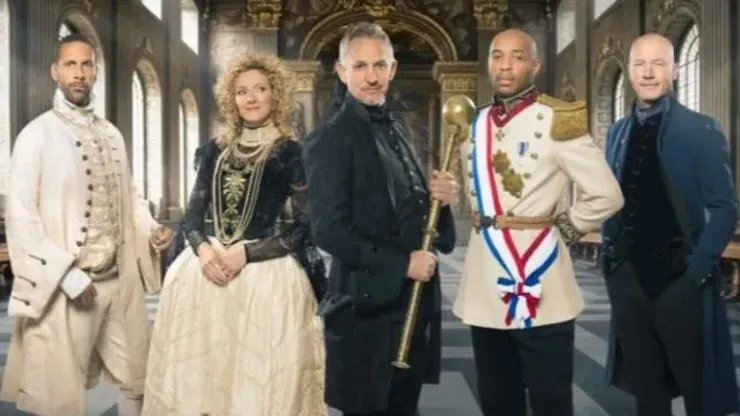Soccer viewers are short changed by the quality of analysis and punditry they are forced to experience, of this there can be no doubt. The sport has a variety of excellent play-by-play men such as Martin Tyler, who does a great job calling the action and informing viewers about who is doing what. But there’s a lack of decent color commentators who add to the action and offer insights that the viewers wouldn’t notice otherwise.
Soccer is an extremely tactical game, described by The Secret Footballer as “almost like chess” at the highest level. Everything is worked on beforehand, set piece runs, third man runs, patterns of passing and movement, it’s all planned. Color commentators, who have usually been involved in the game for decades, at least some of it professionally, have been privy to information almost no viewers have. Their knowledge about player preparation and manager methods is far superior to viewers’, but is almost never shared.
Too often, commentators tasked with sharing insights fall back on clichés and observations either obvious or just incorrect. Every chance is one that should have been taken, and conceded goals are always the fault of a single player, despite how improbable this is.
In most sports, punditry is a “job for the boys.” Soccer is not alone in this. However in other sports there is a clear demarcation between those ex-pros brought in purely for comic relief or because of their stature within the game, and those whose job is to provide insight. In basketball for example, nobody pretends Shaquille O’Neal is on TNT’s popular show Inside the NBA because of the insightful things he says. He is there for comic relief. However Steve Kerr, before taking up the post of coach of the Golden State Warriors, was there to provide basketball analysis, something he did amazingly well.
During BBC and ITV’s Euro 2016 coverage it was plain to see that none of the pundits have stepped up to the mark, aside from the admirable Gianluca Vialli. However, the articulate Italian has experience in expressing his thoughts coherently, with his excellent book The Italian Job a must read for soccer fans. On the contrary, Rio Ferdinand and Craig Bellamy have looked lost for words on-air, and have either repeated things another person on set has just said or said something completely unrelated to what’s been asked. Alan Shearer and Martin Keown are at least more comfortable being in front of a camera, having done a job on Match of the Day for years, but the value they add is not much higher. And if they are constrained by the amount of time they are on air, with just a few minutes before the game, after, and during half-time, there is no excuse for when the likes of Keown are commentating live.
SEE MORE: Review of ESPN’s Euro 2016 TV coverage
Another practice that dilutes the quality of analysis is that of ensuring there is someone from a country that is playing or hosting the tournament on the punditry team. The BBC are especially guilty of this, trotting out a load of former French footballers to say one or two sentences that are essentially meaningless. English is not their first language, and they are not experienced as commentators, so it is no surprise that they do not contribute anything useful.
Sky Sports’ Gary Neville and Jamie Carragher, and to a lesser extent Thierry Henry and Danny Murphy, have proven that it is possible to have high quality analysis from ex-pros if they are given the right conditions to succeed. A slimming down of diversity for diversity’s sake, a better balanced schedule for analysis and a reduction in recruiting ex-footballers simply because they were great players, the right prompting and questioning from the likes of Gary Lineker instead of giving the pros an easy time, and the experience of millions of soccer viewers could be greatly enhanced.
200+ Channels With Sports & News
- Starting price: $33/mo. for fubo Latino Package
- Watch Premier League, Women’s World Cup, Euro 2024 & Gold Cup
The New Home of MLS
- Price: $14.99/mo. for MLS Season Pass
- Watch every MLS game including playoffs & Leagues Cup
Many Sports & ESPN Originals
- Price: $10.99/mo. (or get ESPN+, Hulu & Disney+ for $14.99/mo.)
- Features Bundesliga, LaLiga, Championship, & FA Cup
2,000+ soccer games per year
- Price: $5.99/mo
- Features Champions League, Serie A, Europa League & Brasileirāo
175 Premier League Games & PL TV
- Starting price: $5.99/mo. for Peacock Premium
- Watch 175 exclusive EPL games per season






